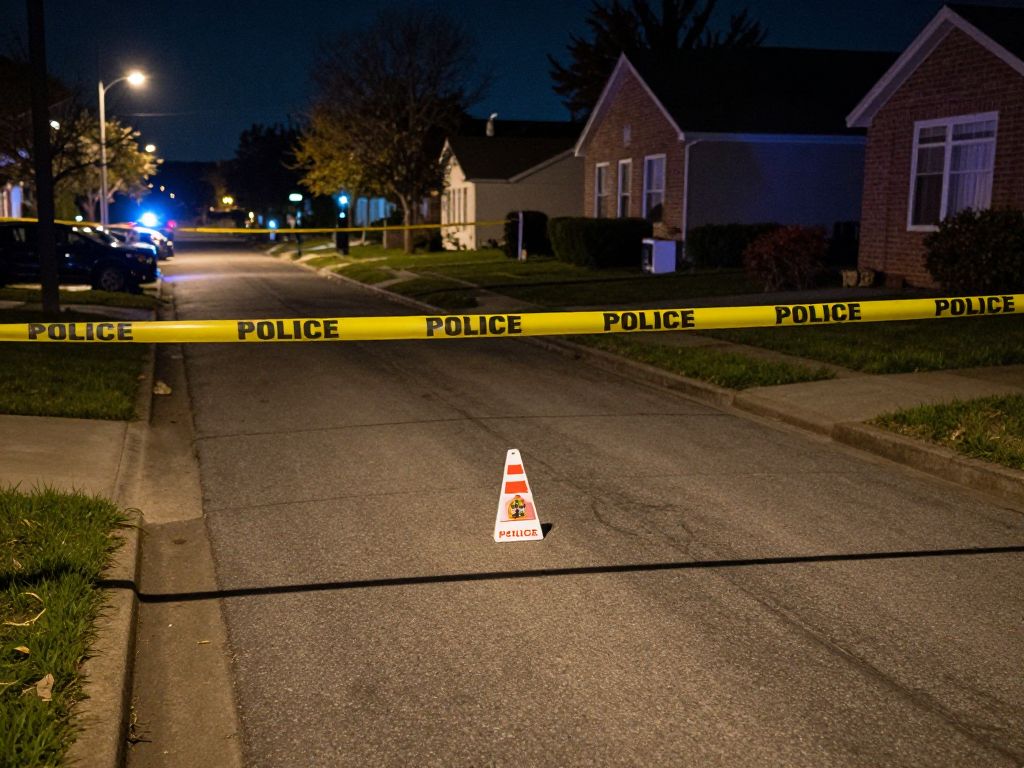News Summary
City officials in Phoenix reaffirm their commitment to police reforms despite the DOJ’s decision to close its civil rights investigation into the Phoenix Police Department. Mayor Kate Gallego and other leaders emphasize the importance of internal reform processes without federal oversight. The closure comes amidst controversies following high-profile police incidents, leading families and civil rights advocates to express concerns about accountability and trust. Despite these challenges, city leadership plans to enhance police-community interactions and improve accountability initiatives.
Phoenix, Arizona – City officials in Phoenix have reaffirmed their commitment to ongoing police reforms, despite the recent decision by the Department of Justice (DOJ) to close its civil rights investigation into the Phoenix Police Department. This closure comes as part of a broader national shift under the current federal administration to dismiss previous investigations and lawsuits concerning police misconduct.
The DOJ announced its decision on May 21, 2020, rescinding earlier findings that indicated constitutional violations within the Phoenix Police Department, which were part of a three-year inquiry instigated by a series of high-profile incidents involving police shootings and aggressive actions towards peaceful protesters. Such investigations gained traction nationwide following the death of George Floyd, a Black man, at the hands of a police officer in Minneapolis, which sparked intensified scrutiny of law enforcement practices across the United States.
In this latest development, city leaders, including Mayor Kate Gallego, expressed a commitment to continuing the reform process internally, asserting their belief that effective changes can be implemented without direct federal oversight. Following the DOJ’s report that detailed unlawful brutality and discriminatory practices, city officials launched several initiatives aimed at improving the police department’s operations, including policy enhancements, revised training protocols, and accountability measures.
Since September, Phoenix has initiated a range of reforms focused on enhancing police-community interactions, improving data collection methods, and fostering greater accountability. Notably, in February 2023, the police department amended its use-of-force policy to prioritize reasonable, necessary, and proportional responses in line with community expectations. Additionally, a new internal police team was created to ensure compliance with reform efforts and to bolster the investigative processes related to police conduct.
Nonetheless, families of victims who have faced violence from the police expressed disappointment with the DOJ’s decision and the city’s assurances about police reforms. Critics argue that the closure of the federal investigation may undermine accountability and community trust in law enforcement. Civil rights leaders and families feel betrayed by the lack of continued federal oversight, fearing it will allow systemic issues to persist without adequate checks.
Former Interim Police Chief Michael Sullivan suggested that resistance to reforms was, in part, influenced by political changes at the federal level. Some city leaders voiced approval of the DOJ’s decision to close the investigation, contending that external oversight could have imposed significant financial burdens on the city. However, Councilmembers remain dedicated to pursuing improvements within the police department, vowing to maintain progress in reform efforts despite the end of federal scrutiny.
Community organizations such as Poder in Action have criticized the DOJ’s move as an attempt to erase the challenges faced by marginalized groups in Phoenix. Attorneys involved in the earlier investigations argue that retracting findings from the civil rights inquiry serves more as a public relations maneuver rather than a genuine commitment to community safety.
In reaction to the DOJ’s decision, civil rights attorney Jesse Showalter has noted that while federal investigations may cease, private lawsuits against the police department can and will continue. This context highlights a persistent community demand for accountability and reform within local law enforcement.
As Phoenix city officials enforce their reform agenda, the situation remains complex, with clashing views between civic leadership and community advocates regarding the efficacy and sufficiency of the measures being implemented. Moving forward, the emphasis on police practices and community relations in Phoenix continues to evolve, with citizens advocating for meaningful change to enhance safety and trust.
Deeper Dive: News & Info About This Topic
HERE Resources
Arizona’s Prison System Faces Crisis Amid Violence and Shortages
DOJ Rescinds Phoenix Police Reform Report
Phoenix City Council Approves Controversial $4.8 Billion Budget
Phoenix City Council Votes on $2.2 Billion Budget Proposal
Phoenix Police Chief Search Faces New Challenges
Phoenix Police Practices Under Scrutiny Following DOJ Report
Tragic Murder of 14-Year-Old Sparks Calls for Change
Additional Resources
- D Courier: Despite Phoenix mayor’s vow of ongoing police reform
- AZ Family: What’s next for police reform in Phoenix?
- Axios: More Phoenix police reforms coming
- Washington Post: Capitol Police chief Sullivan named
- Wikipedia: Police reform
- Google Search: Phoenix police reform
- ABC15: DOJ closes probe into Phoenix PD investigation
- Encyclopedia Britannica: Policing

Author: STAFF HERE PHOENIX WRITER
The PHOENIX STAFF WRITER represents the experienced team at HEREPhoenix.com, your go-to source for actionable local news and information in Phoenix, Maricopa County, and beyond. Specializing in "news you can use," we cover essential topics like product reviews for personal and business needs, local business directories, politics, real estate trends, neighborhood insights, and state news affecting the area—with deep expertise drawn from years of dedicated reporting and strong community input, including local press releases and business updates. We deliver top reporting on high-value events such as the Waste Management Phoenix Open, Cactus League Spring Training, and Arizona State Fair. Our coverage extends to key organizations like the Greater Phoenix Chamber of Commerce and Visit Phoenix, plus leading businesses in technology and healthcare that power the local economy such as Intel and Banner Health. As part of the broader HERE network, including HERETucson.com, we provide comprehensive, credible insights into Arizona's dynamic landscape.





